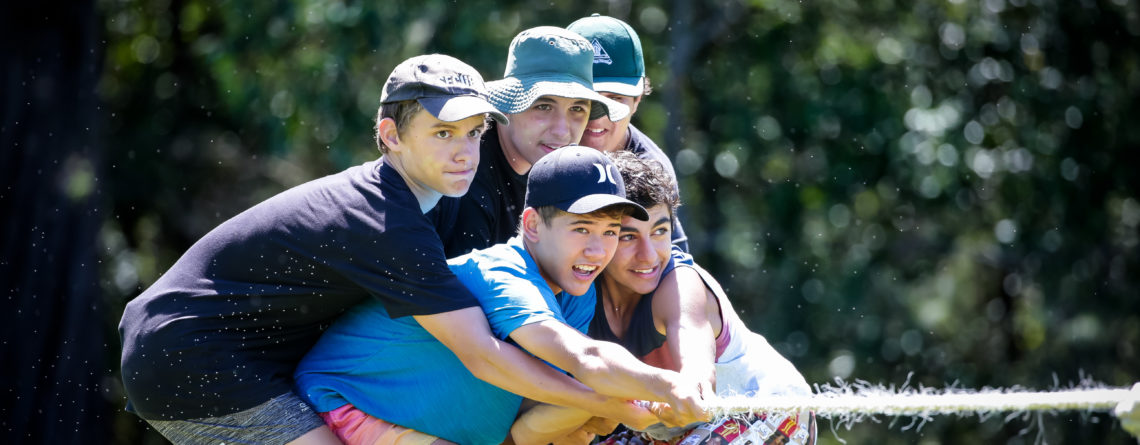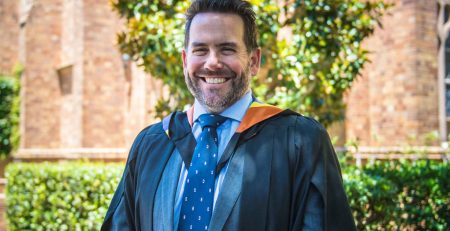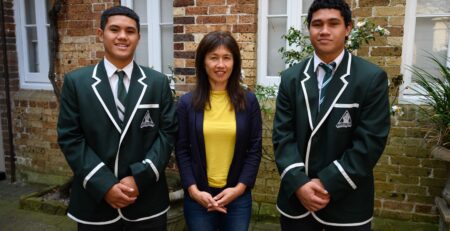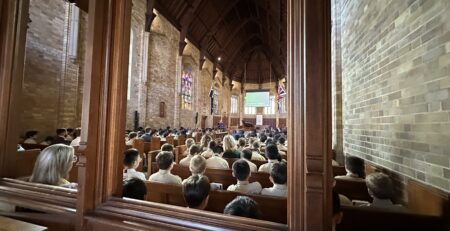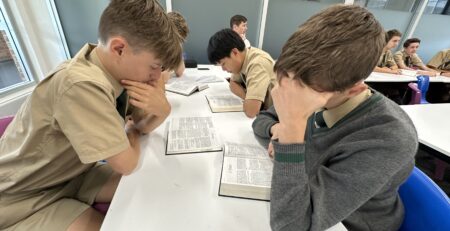What is Outdoor Education in NSW Schools?
Outdoor Education
If you’ve been on the hunt for the right school in which to enrol your child, it’s likely you’ve heard the term ‘outdoor education’ at one point or another. The term is used both informally and formally, so it can leave some people scratching their heads.
We often hear people wondering what outdoor education means, what it looks like across schools in NSW, and how Trinity’s Outdoor Education Programme differs. Make sure you’re across the world of outdoor education so you can make the best educational decisions for your child.
Environmental Education
What is outdoor education?
At its core, outdoor education is exactly what you would expect – learning that takes place outdoors. Any learning experience that takes place outdoors or in a natural setting can be considered outdoor education and while many schools will conduct outdoor learning experiences, few schools in NSW have a comprehensive outdoor education programme.
What can students gain from outdoor education?
Movement – staying active is easy in the great outdoors. Hikes, canoeing, surfing, abseiling, bike riding, and more are the kinds of things students can get involved in during an outdoor programme. Even lessons that take place in the outdoor classroom can mean walking from one location to the next. Outdoor education keeps students on their toes, literally and figuratively.
Immersion – classrooms are great places to learn but in outdoor education, students can see how the theory they learn plays out in the real world. Whether they’re observing the life cycle of plants, using Mathematics and Geography concepts to chart their course on a hike, or understanding the nutrition of local bush food, students can put theory into practice in real time and have more impactful learning experiences.
Character – outside of the classroom, things aren’t always as smooth sailing. Through outdoor education, students build resilience, adaptability, and self-confidence as they take initiative to solve problems and find ways to get through challenges.
Relationships – while each individual learns a lot, they also learn together, building their relationships with their peers, taking on leaderships roles – formally and informally – working as a team and discovering what effective communication looks like. Thrown together in new situations, students discover how to step out of their comfort zone to be challenged and to be supported in ways they may never have experienced before.
Appreciation – the surest way to gain appreciation of God’s creation is to spend time in it. Outdoor education helps students to witness God’s creation firsthand and see His character through creation.
Two passages from the Bible show us how creation can impact us profoundly when it comes to our relationship with God, and students experiencing outdoor education are no different:
“How many are your works, Lord! In wisdom you made them all; the earth is full of your creatures. There is the sea, vast and spacious, teeming with creatures beyond number – living things both large and small.” Psalm 104:24-25
“For since the creation of the world God’s invisible qualities – his eternal power and divine nature – have been clearly seen, being understood from hat has been made, so that people are without excuse.” Romans 1:20
What does outdoor education look like at Trinity?
Outdoor Classrooms
Trinity Grammar School’s purpose-built Field Studies Centre (FSC) in Woollamia on Sydney’s South Coast is home to Trinity’s Outdoor Education Programme. For a full term during Year 9, students are transported to the FSC for an immersive, residential education experience. The programme is compulsory, and each term a unique group of students heads to the FSC to experience it for themselves.
The programme provides opportunities for self-discovery, building relationships, exploring new ways of being in community together, and providing time for self-reflection and spiritual growth in a unique environment.
“Time spent at the FSC gives students the opportunity to dive into creation, spend time away from their families, and experience a life where learning and play come together,” says Mr Tim Knowles, Head of the Field Studies Centre. “At Trinity, our goal is to provide boys with a thoroughly Christian education in mind, body, and spirit; the Field Studies residential programme plays a part in developing all three of these elements of a boy’s character.”
“Trinity is a deliberately challenging school. Many boys are used to passive recreation, instead of active, and their time engaging in Outdoor Education is meant to push these boundaries. Some boys will find it a challenge just to make their bed each day, while others will fight their fear of heights, and still others will challenge themselves out on the waves as they learn to surf.”
At the Field Studies Centre, students will …
Keep pace with their academic studies – the academic staff team at the FSC are equipped to ensure that all students are able to continue learning alongside their peers who remain at the Summer Hill campus. In line with the curriculum, students will explore their surroundings as they learn and apply their studies in unique ways, both inside and outside of the classroom.
Try new things – the Field Studies Centre is designed to give students access to things they may never have had the chance to experience before. Whether it’s being responsible for their own surroundings by making their bed each morning and keeping their rooms clean, or whether it’s canoeing along the Shoalhaven river – no student goes away from the FSC without having been challenged.
Impact the community around them – the Shoalhaven region is a unique and beautiful part of the world. As they are immersed in the community, students will learn to appreciate their new surroundings by looking after them through initiatives like a beach clean, looking after some of the region’s 100 beaches by collecting rubbish and sorting it effectively to ensure it is processed correctly, avoiding landfill where possible.
Engage in self-reflection – every student is encouraged to reflect daily on their experiences through a journal, as well as reflecting on the experience as a whole towards the end of their time in the programme. Every student will grow and change, but the reflection process helps boys to understand this process for themselves, recognising the ways in which they have taken initiative, grown in character, and pushed themselves out of their comfort zone.
Trinity’s outdoor education programme is one of the most comprehensive in NSW
Now extended to a full term, Trinity’s Field Studies Programme is sought after because of its ability to give students a unique and memorable experience that is remembered by many students long after they’ve left Trinity as the highlight of their academic career at the School.
While it’s true that outdoor learning can happen anywhere – and many schools are embracing outdoor education in some form – the right staff team and the best facilities can take an experience to the next level.
The breadth of Trinity’s Field Studies Programme is its strength. Far more than just an Outdoor Programme or an Academic Programme away from home, it brings these two together alongside socio-emotional learning to give students a transformative experience that challenges and supports them in equal measure.

